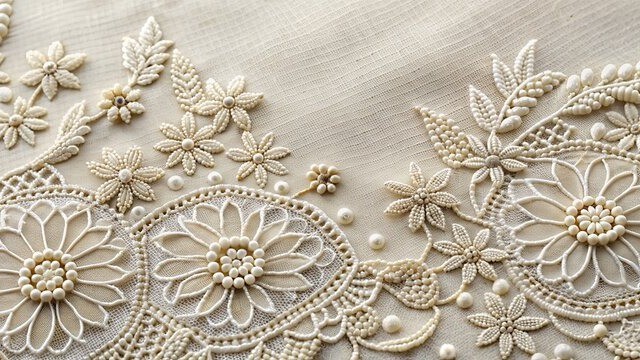There are some stories that don’t begin with “Once upon a time.” They linger in the threads of a dupatta, in the charm of an old haveli, in the quiet grace of a woman walking down the bylanes of Chowk.
The story of Lucknow and Chikankari explains this very sentiment, it is one that is eternally and intrinsically etched in the roots of the city. Lucknow speaks in nazakat (grace), in tehzeeb (etiquette), in the age-old old-world riwayat (tradition). And at the heart of this charm is Chikankari — the delicate, hand-embroidered poetry on cloth. Not just a craft, but a culture.
Threads of royalty: The rich history behind it all

Legend says it was Noor Jahan, the Mughal empress herself, who introduced Chikankari to India. However, it is hard to tell where the romance begins and the truth ends. What we do know is that by the time the Nawabs of Awadh ruled, Chikankari was already synonymous with Lucknow. It soon became a symbol of royalty.
And what better place for such an intricate craft to flourish? Lucknow, the city of poets and culinary delicacies, of artisans and embroidery, turned Chikankari into a famed symbol.
Chikankari: A language of graceful motifs

Chikankari embroidery carries strong motifs like bel (creepers), phool (flowers), murri (grain-like knots), jaali (mesh-like patterns) and so on, each contributing to the craft. Together, they compose a language that has been passed on through generations of artisans and families. In Lucknow, the signature creepers and floral motifs of Lakhnawi Chikankari are distinct and instantly recognisable.
Adorning a wide host of fabrics — from silk and cotton to georgette, muslin, viscose and chanderi — Chikankari embroidery often takes days to complete. Traditionally, white thread is delicately hand-embroidered on cool, pastel-toned garments, offering each piece elegance.
Beyond borders, beyond trends: Chikan

From sarees to kaftans, there’s hardly a garment (or a city) in India untouched by the charm of Chikan. Its presence is everywhere, in boutiques and bazaars found at every corner of every district, woven into everyday wear and ensembles alike.
You can change cities, transform your wardrobes and yet, Chikan will always be a part of you. A global phenomena today, the craft has such beauty that it has put Lucknow on the globe, making a deeper mark than many other crafts with a GI tag will ever have.

